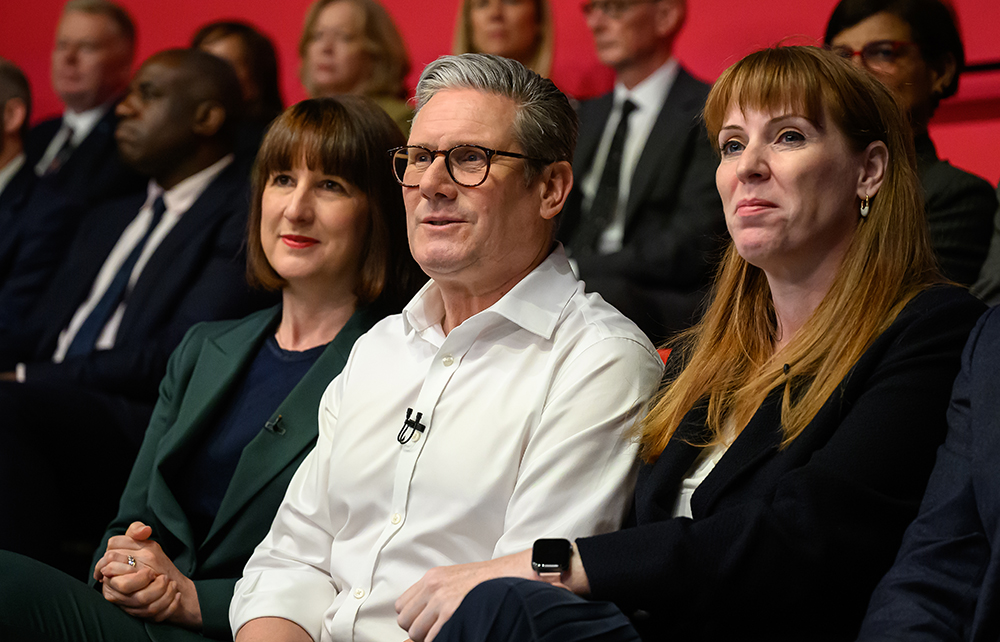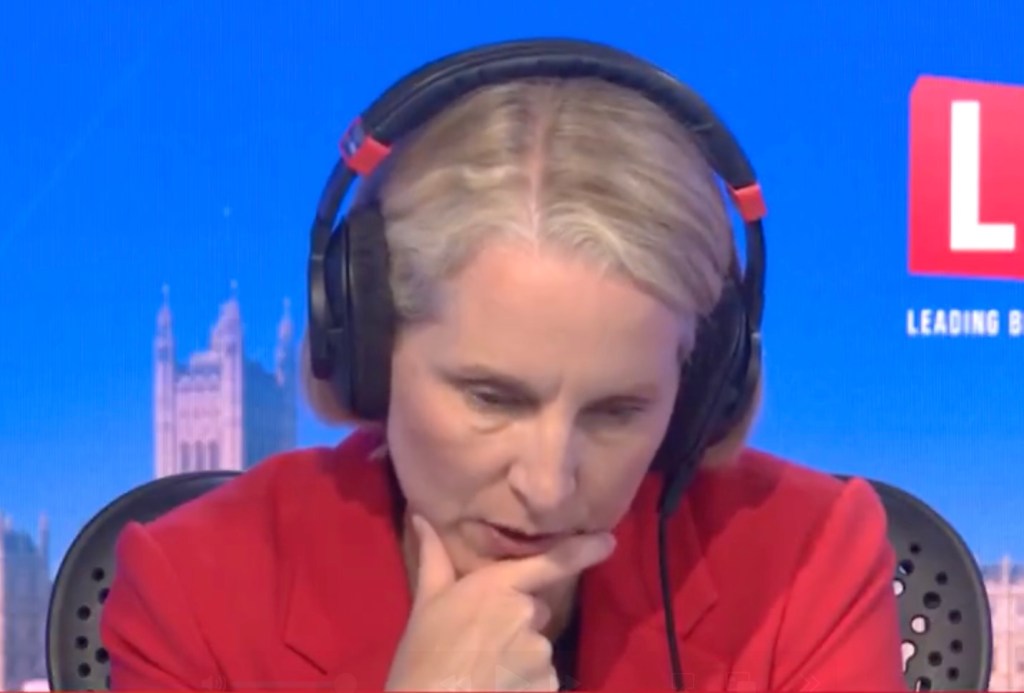By the end of the year, Britain may be one of the few countries in the democratic world where the right is losing. In America, Donald Trump is the favourite to win. Ahead of next month’s European Parliament elections, momentum is with Germany’s AfD, Marine Le Pen’s National Rally and Austria’s Freedom party. Migration is the most pertinent issue pushing Europe rightwards, but many voters are also turning to insurgent right-wing parties as a rebellion against the cost of net-zero policies.
Labour sees an electoral benefit in sticking to its green energy plans to stop voters defecting to the Greens
In the UK, the future of green scepticism looks somewhat different. Should Starmer win a majority, the fiercest critics of his green ambitions won’t come from the opposition, but from his own side: the unions.
Unite, the trade union that gives more money to Labour than anyone or anything else, launched a campaign this week complete with banners, billboards and newspaper wraparounds. Its goal isn’t to preserve a Labour pledge, but to get one to be scrapped: Ed Miliband’s plan to block new oil and gas licences in the North Sea.
Gary Smith, the head of the GMB trade union, has ridiculed the shadow energy secretary’s agenda, saying that the only ‘green jobs’ for British workers involve either lobbying in London or counting the dead birds under wind turbines. Now Unite has a similar message. The campaign slogan is ‘No ban without a plan’. Any restriction on oil and gas exploration would badly affect industrial jobs – disproportionately in the north-east. In what way is Labour’s plan anything other than a green version of the Thatcher-era closure of the coal mines and steelworks? It’s a question the party has to answer.
‘Labour needs to pull back from this irresponsible policy,’ says Sharon Graham, Unite’s general secretary. ‘There is clearly no viable plan for the replacement of North Sea jobs or energy security.’
A study this week from Robert Gordon University in Aberdeen gave credence to Unite’s concerns. It warned that the UK is running out of options for a ‘just transition’ for oil and gas workers to equally good jobs in renewables. ‘Bottom line: the percentage of workers who will get a decent job is less than half a per cent,’ says one trade unionist.
So the unions are fighting for their members, even if that means fighting Labour. Unite’s six-week campaign is focused on Scotland and six constituencies believed to be so closely contested that Labour’s green agenda could cost the party those seats at a general election. Scottish Labour, fearing a voter backlash, has long been uncomfortable with Miliband’s green crusade. Anas Sarwar, the party’s leader in Holyrood, has said ‘oil and gas will play a major part of the energy sector for decades to come’.
At the GMB, Smith calls Miliband’s oil policy ‘bad for investment, jobs and national security’. As one Labour union insider puts it: ‘Smith is straightforward “drill-baby-drill”. Unite’s position is there has to be net zero – but not if Scottish workers are sacrificed on the altar.’
What Smith and Graham have in common is that they are a new breed of union leader. When Len McCluskey ran Unite, he was an ideological Corbynista who wanted control over Labour’s party mechanisms – and even influence over the selection of Labour candidates. ‘Sharon is the political opposite of McCluskey,’ says a union figure. ‘She’s led a turn away from parliamentary gazing to the shop floor.’

Within the shadow cabinet, there is a confidence that Unite – which really wants investment – will come around and see that some of its demands have already been met. A Labour source emphasised that Unite isn’t really asking to change the licences policy, but for greater support: ‘It is campaigning for things we’ve agreed to.’
In the meantime, Unite has played its favourite trick of withdrawing funding: some £6 million is said to have been diverted from Starmer’s war chest. However, since Labour now takes much more from private donors, this is not quite the slam dunk that it would have been a few years ago. ‘Relations between Keir and Sharon are frosty,’ says a party figure. ‘But he also needs her less.’
The debate over oil and gas is just one of the green policy challenges that a Labour government will face in its first term. Starmer has already axed his plan to spend £28 billion a year on green investment, which had hitherto been his signature economic policy. While there was little in the way of a Labour rebellion when the U-turn was announced, some MPs wonder privately whether Miliband will be able to deliver his pledge of clean power by 2030. Even his biggest supporters won’t deny that the target is incredibly ambitious. In shadow cabinet, parallels are being drawn with the vaccine task force set up during the pandemic. It is seen as an example of what can be done when government and industry have clear priorities: they can deliver extraordinary results.
Some party figures are most concerned about the role planning reform will have to play in making the green agenda work. They worry about the community kickback to the number of pylons and amount of above-ground infrastructure that will be needed. The plan is to encourage community consent by giving households near to new infrastructure money off their energy bills.
Despite these concerns, Labour sees an electoral benefit in sticking to its green energy plans, because the policies will stop voters from defecting to the Green party. Labour strategists have long believed that sending out Miliband with his ukulele to sing about the pros of wind turbines is a good way to keep the coalition on side.
But as the financial pain caused by net zero becomes more obvious, the fight between Labour’s green idealists and the protectionist unions will only get worse. A green plan that leads to mass unemployment among industrial workers is one that the party’s oldest paymasters will not be able to get behind.








Comments